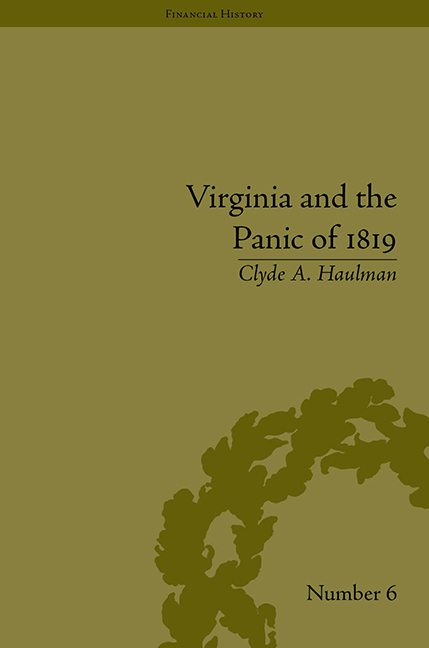Book contents
5 - Business
Summary
Writing in May 1819 to George Caskaden, a former Richmond retail merchant who had relocated to Fort St Stevens, Alabama, Benjamin Brand informed him, ‘You have been lucky in removing from this place’. Caskaden's good fortune was to avoid the devastating impact of the Panic of 1819 on merchants in the Commonwealth's capital. Describing business conditions, Brand wrote, ‘We have gloomy times here – many protests [failures] have taken place since I last saw you, and many more soon expected … Many have backed out of business.’ The financial crisis meant that ‘at this time there is very little credit business done. Confidence in each others ability to pay is very slight. (On Saturday it is said there were 12 notes laid over for protest.)’ The decline in business activity left ‘many store houses … shut up and written on “For Rent”’ and took the bottom out of what had been a speculative boom in property. According to Brand, ‘It is thought house rent next year will be about half the present price. Lots out of the business part of the city may be purchased for about ⅓ to 1⁄10 of what they sold for when you resided here.’ For the business community the effect was to create an atmosphere of gloom. As Brand observed, ‘Nearly all the trading part of the citizens, both debtors &creditors, have long dejected faces &I suspect many sleepless nights, particularly amongst those who lived in great splendour &extravagance.’ Summing up, Brand wrote, ‘Times much changed – economy seems all the fashion. – Fine furniture may be purchased at vendue at one half and sometimes one third of the original costs.’ John Marshall, putting it more concisely in a letter to Bushrod Washington two months earlier, said, ‘We are in great distress here for money. Many of our merchants stop – a thing which was long unknown and was totally unexpected in Richmond’.
- Type
- Chapter
- Information
- Virginia and the Panic of 1819The First Great Depression and the Commonwealth, pp. 73 - 102Publisher: Pickering & ChattoFirst published in: 2014



